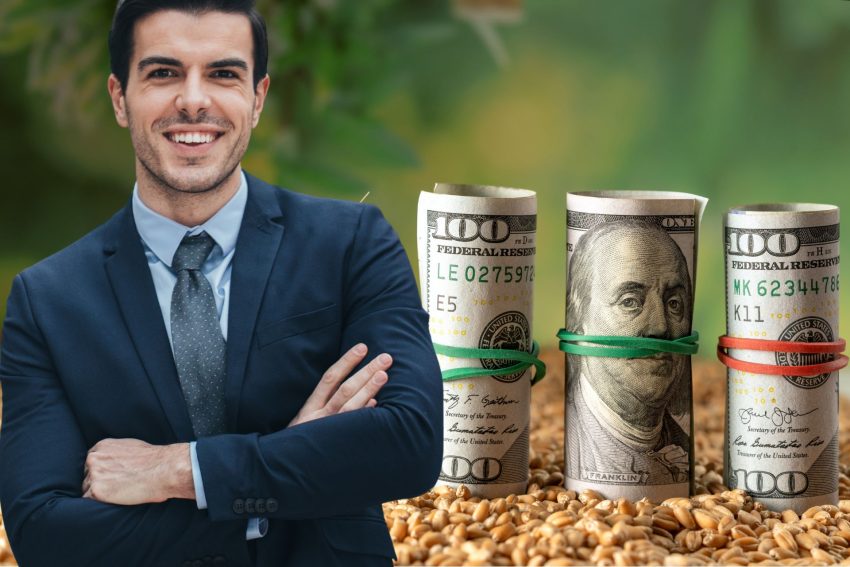A recent article published by OffGuardian, titled “Digital Harvest: BlackRock, Vanguard, State Street – Shareholders in the Shadows,” reveals a troubling reality for farmers worldwide. While these financial giants—BlackRock, Vanguard, and State Street—do not own tractors, sell seeds, or ship grain, their influence over global agriculture is immense and largely invisible. Together, they manage over $26 trillion in assets, giving them unprecedented control over the agrifood chain. This should alarm farmers, as their livelihoods are increasingly shaped by these shadowy shareholders rather than market forces or their own decisions.
The Financial Giants Behind Agriculture
BlackRock, Vanguard, and State Street, often referred to as the “Big Three,” are asset management firms that collectively hold dominant stakes in nearly every major agribusiness. From seed and chemical companies like Bayer and Syngenta to food giants like Nestlé and PepsiCo, and even equipment manufacturers like Deere & Co., these firms are among the top shareholders across the board. According to the Food Barons 2022 report by ETC Group, the Big Three are frequently the top three investors in key sectors of the agrifood chain, including supermarkets and logistics platforms.
What makes their influence so alarming is their model of “co-ownership.” Rather than competing, these firms hold shares in competing companies simultaneously, creating a system of quiet coordination rather than traditional market competition. For farmers, this means the companies they rely on for seeds, equipment, or markets may not be driven by innovation or customer needs but by the aligned interests of these financial titans.
Structural Power, Not Direct Control
The Big Three don’t need to micromanage daily operations to exert control. Their power is structural, exercised through boardroom decisions, shareholder resolutions, and capital flows. They shape what companies prioritize—whether it’s profit margins, risk management, or compliance with Environmental, Social, and Governance (ESG) metrics. While ESG is often marketed as a framework for sustainability, the OffGuardian article argues it’s primarily a risk management tool, not a moral compass. For example, in 2023, BlackRock and Vanguard voted against resolutions that would have required agribusinesses to disclose their impacts on deforestation and land rights, citing the proposals as “too prescriptive.” This suggests a preference for maintaining corporate freedom over transparency, which could harm farmers reliant on “sustainable” land use.
For farmers, this structural influence translates to a loss of agency. The prices they pay for inputs, the markets they sell to, and even the policies governing their land may be shaped by the priorities of these asset managers, who are far removed from the realities of farming. The article emphasizes that this is not a conspiracy but a natural outcome of aligned incentives among the Big Three, making their influence harder to challenge.
The Illusion of Competition
One of the most concerning findings is the illusion of competition in the agrifood sector. When BlackRock, Vanguard, and State Street hold significant shares in both Bayer and Syngenta, or Nestlé and PepsiCo, the rivalry between these companies becomes performative. The real power lies with the shareholders, who benefit from coordinated strategies that prioritize financial returns over innovation or affordability. For farmers, this could mean higher costs for seeds, fertilizers, or equipment, as well as fewer choices in the marketplace.
This lack of genuine competition also stifles innovation. Companies under the Big Three’s influence may avoid risky investments in sustainable practices or new technologies if they don’t align with short-term financial goals. Farmers, who often bear the brunt of extreme weather and market volatility, may find themselves stuck with outdated or unsustainable solutions as a result.
The Circular Ownership Puzzle
Adding to the complexity is the circular ownership among the Big Three themselves. Vanguard, BlackRock, and State Street are among each other’s top shareholders, creating a web of influence that further insulates them from accountability. The OffGuardian piece raises the question: Who truly owns Vanguard? The answer is murky, but this interconnected ownership structure amplifies their collective power, making it difficult for farmers, or anyone else, to push for change.
Why Farmers Should Be Alarmed
Farmers should be alarmed for several reasons:
Loss of Food Sovereignty: The article argues that food sovereignty—control over seeds, soil, and markets—is increasingly a financial issue. Farmers are losing the ability to make independent decisions as financial giants shape the agricultural landscape through their investments.
Higher Costs and Fewer Choices: With reduced competition, farmers may face inflated prices for inputs and limited options for selling their products, squeezing already tight margins.
Lack of Transparency: The Big Three’s influence is “largely invisible to the public,” leaving farmers unaware of the forces dictating their industry. This opacity makes it harder to advocate for fair policies or practices.
What Can Farmers Do?
Challenging the power of BlackRock, Vanguard, and State Street is daunting, but farmers are not powerless. Collective action through cooperatives or advocacy groups can amplify their voices. Supporting policies that increase transparency in corporate ownership and strengthen antitrust regulations could curb the Big Three’s influence. Additionally, farmers can explore alternative markets, such as local or direct-to-consumer models, to reduce reliance on corporate-controlled supply chains.
Conclusion
The OffGuardian article paints a sobering picture of modern agriculture, where BlackRock, Vanguard, and State Street wield immense power from the shadows. For farmers, this means navigating an industry increasingly shaped by financial interests rather than the needs of those who work the land. By understanding this hidden influence, farmers can take steps to reclaim their sovereignty and push for a more equitable food system. The stakes are high—food sovereignty is not just about seeds or soil; it’s about who holds the power to decide the future of farming.


